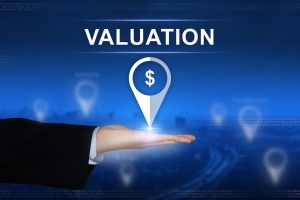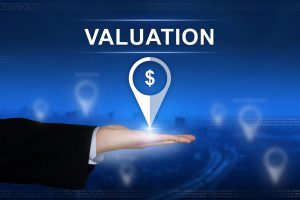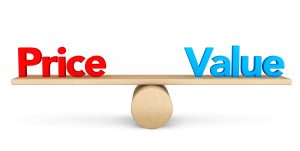This overview can help you understand the approaches, methods and factors important to valuing your business
 Revenue Ruling 59-60 was issued by the IRS to “outline and review in general the approach, methods and factors to be considered in valuing the shares of the capital stock of closely held corporations for estate and gift tax purposes.” This revenue ruling is regarded as the foundation of modern business valuation, and although issued sixty years ago, the approach, methods and factors set forth therein are still used in every business valuation, including valuations of business entities other than corporations.
Revenue Ruling 59-60 was issued by the IRS to “outline and review in general the approach, methods and factors to be considered in valuing the shares of the capital stock of closely held corporations for estate and gift tax purposes.” This revenue ruling is regarded as the foundation of modern business valuation, and although issued sixty years ago, the approach, methods and factors set forth therein are still used in every business valuation, including valuations of business entities other than corporations.
Revenue Ruling 59-60 lists the following eight fundamental factors that require careful analysis in each case.
- The nature of the business and the history of the enterprise from its inception.
- The economic outlook in general and the condition and outlook of the specific industry in particular.
- The book value of the stock and the financial condition of the business.
- The earning capacity of the company.
- The dividend paying capacity.
- Whether or not the enterprise has goodwill or other intangible value.
- Sales of the stock and the size of the block to be valued.
- The market price of stocks of corporations involved in the same or a similar line of business having their stocks actively traded in a free and open market, either on an exchange or over the counter.
Approaches to valuing a business
The three basic approaches in valuing a business are the asset approach, the income approach, and the market approach. The factors listed above include the analysis required to value a business under each of these approaches.
Asset approach
Under the asset approach, the value of the business is the value of the net tangible assets. This method does not consider goodwill or other intangible assets and is most commonly used in the valuation of real estate entities. This method may also be applicable to unprofitable businesses and those in or close to liquidation.
Market approach
The market approach consists of two methods, the guideline public company method and transaction method. Under the guideline public company method, the financial attributes of the subject company including but not limited to sales, earnings, cash flow, total assets, net book value are compared to the same attributes of publicly traded companies in the same or similar industries, and with fairly complex analysis, the value of the subject company is determined by comparison to the stock price of the publicly traded company. This method is generally not applicable to small businesses because they are not usually comparable to publicly traded companies, even those in the same industry.
Under the transaction method, the value of the subject company is determined based on analysis of and comparison to the financial attributes of similar companies that have sold in private transactions. This method is used when there are enough comparable transactions, and enough financial information about these transactions is available.
Income approach
Under the income approach, a measure of income (generally normalized cash flow) is capitalized or discounted to estimate the value of the company. Capitalization is used for historical cash flow; discounting is used for projected cash flow. The capitalization rate is based on risk, that is, the risk that the expected cash flow will not be realized. Common closely held business risks considered in this process include customer or supplier concentration or diversification, depth of the management team, product obsolescence, prospective competition, and the state of the industry in which the company participates.
Learning more about business valuation
This is a ten-thousand-foot view of business valuation. Future posts will provide detailed information of things discussed here. Many of the factors considered are controllable, and factors reducing business value can often be improved. Those who are considering the future sale of a business and want to maximize its value should start thinking about this now. If you wait until you are ready to sell, that is usually too late. The first step is to understand the current value of the business, and what are the factors driving that value. After that, the valuation can be periodically updated, which will be a gauge of progress in increasing value.
Visit our business valuation page to learn more about our business valuation services and contact us if you want to discuss planning the future of your business.

 Your business represents a big part of your wealth. Here’s why you need to protect it with a succession plan.
Your business represents a big part of your wealth. Here’s why you need to protect it with a succession plan. I frequently receive requests to quickly value a business by applying a “rule of thumb”, that is, application of a simple formula to the gross or net income of a business to determine its value. The value of a business is based on two factors: cash flow and risk. Using a rule of thumb to value a business considers neither.
I frequently receive requests to quickly value a business by applying a “rule of thumb”, that is, application of a simple formula to the gross or net income of a business to determine its value. The value of a business is based on two factors: cash flow and risk. Using a rule of thumb to value a business considers neither. The
The  Why should you have a buy-sell agreement?
Why should you have a buy-sell agreement? Defining “value” can help you avoid negative consequences
Defining “value” can help you avoid negative consequences As evident from these questions, the thing to focus on is the future. Although the seller will certainly focus on past performance, what happened twenty, ten, or five years ago is of little significance; you want to know what will happen in the future.
As evident from these questions, the thing to focus on is the future. Although the seller will certainly focus on past performance, what happened twenty, ten, or five years ago is of little significance; you want to know what will happen in the future.




 Let’s face it, to be called a certified public accountant (CPA) one must have a certain educational background as well as proven knowledge (i.e., by passing a rigorous exam). We believe CPAs have the business acumen that allows them to prepare basic financial reports and tax returns. You may also expect your CPA to fill the role of business consultant to help you achieve certain business and personal results.
Let’s face it, to be called a certified public accountant (CPA) one must have a certain educational background as well as proven knowledge (i.e., by passing a rigorous exam). We believe CPAs have the business acumen that allows them to prepare basic financial reports and tax returns. You may also expect your CPA to fill the role of business consultant to help you achieve certain business and personal results. It is unlikely that any single action will result in a significant increase in cash flow, but the here are some areas where improvement may be achieved:
It is unlikely that any single action will result in a significant increase in cash flow, but the here are some areas where improvement may be achieved: Buying a business is an investment decision, no different than buying stock in a publicly traded company. When investing in public company, you consider two factors; how much can you expect to receive in dividends and what do you expect the stock price to be when you sell. Not all stocks pay dividends, but absolutely no sane person would purchase stock in a company if they expected the share price to go down during their period of ownership.
Buying a business is an investment decision, no different than buying stock in a publicly traded company. When investing in public company, you consider two factors; how much can you expect to receive in dividends and what do you expect the stock price to be when you sell. Not all stocks pay dividends, but absolutely no sane person would purchase stock in a company if they expected the share price to go down during their period of ownership.